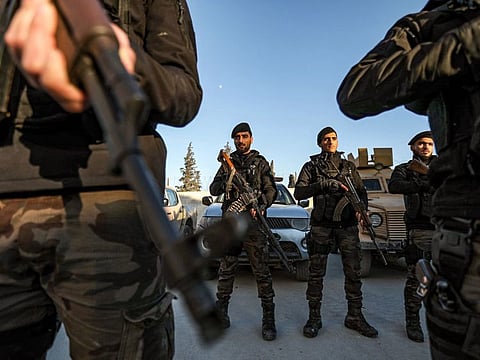Turkey hosts Syria opposition after outreach to Assad
Meeting comes less than week after ministers of Turkey, Syria hold landmarks talks

ISTANBUL: Turkey on Tuesday hosted the leaders of Syria’s opposition in a show of support after sparking concern among them by its moves for closer ties with Damascus.
Foreign Minister Mevlut Cavusoglu tweeted images of his meeting in Ankara with the opposition Syrian National Council chief Mahmut Al Maslat and other leaders.
The meeting came less than a week after the defence ministers of Turkey and Syria held landmarks talks in Moscow, the first such meeting since 2011.
“We reiterated our support to the Syrian opposition and people in accordance with UNSC Resolution 2254,” Cavusoglu said, referring to a 2015 United Nations call for a ceasefire and political settlement in Syria.
Ankara became a sworn enemy of Damascus when it began backing rebel efforts to topple President Bashar Al Assad’s regime at the start of the Syrian civil war 12 years ago.
But Turkish President Recep Tayyip Erdogan - who called Assad a “terrorist” in 2017 - has opened up to the idea of meeting the Syrian leader.
Erdogan has suggested that the talks between the defence ministers be followed up by a meeting between the foreign ministers that could set up a potential presidential summit.
Cavusoglu said he expects to meet his Syrian counterpart Faisal Mekdad in Moscow in the second half of January.
But Assad’s regime appears cool to Erdogan’s outreach efforts.
Some analysts believe that Assad will not agree to meet Erdogan before Turkey holds a general election - now scheduled for no later than June.
Erdogan’s efforts to set up talks with Assad follow calls from Turkey’s main opposition party for Ankara to pull back its troops from Syria and make peace with Damascus.
The mooted reconciliation has alarmed Syrian opposition leaders and supporters who reside mostly in parts of the war-torn country under Ankara’s indirect control.
It also caused concern in Washington but won strong backing in Moscow - the main military backer of Assad.


